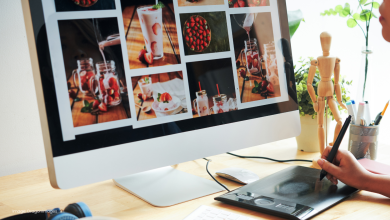
What is Clean Beauty?
Clean beauty means using skincare and makeup products that don’t have harmful ingredients. These products focus on safe, natural ingredients that are good for both your skin and the planet. They usually avoid chemicals like parabens, sulfates, and synthetic fragrances. Clean beauty brands like Tarte Cosmetics is an example of brand that are eco-friendly and don’t test on animals.
The criteria:
- No harmful or toxic ingredients
- Safe and natural
- Eco-friendly packaging
- Cruelty-free (no animal testing)
What is Halal Beauty?
Halal beauty refers to products that follow Islamic guidelines, meaning they are allowed for Muslims to use. These products don’t contain non-halal ingredients like pork-based items or alcohol. Halal beauty also focuses on ethical production, making sure the products are made in a way that respects Islamic values.
The criteria:
- No non-halal animal ingredients or alcohol
- Made ethically in line with Islamic values
- Inclusive for Muslims, but anyone can use them
Clean Beauty Doesn’t Equal to Halal: Here’s Why
While both clean beauty and halal beauty put importance to ethical practices and safe ingredients, they are fundamentally different in their principles and criteria. Therefore, it can be confusing. Here’s why clean beauty does not automatically equate to halal beauty:
1) Different Ingredient Standards
Clean beauty products, even if they are using safe, natural ingredients, it can contain non-halal ingredients. For instance, certain animal-derived components or alcohol can present in clean beauty products. For halal beauty, if an ingredient comes from a non-halal source or contains alcohol, it’s a hard pass. Muslim consumers will have to avoid it altogether. This is why halal beauty ensures that everything in the product is 100% permissible for Muslim consumers.
2) Regulatory and Certification Differences
Clean beauty brands can call themselves clean for their transparency based on their ingredient choices and practices. But this can lead to some variability in standards, so as consumers, research is important. Meanwhile, halal beauty requires certification from recognized halal authorities to prove that it is truly halal.
3) Focus on Ethical Practices
When it comes to ethics, both clean and halal beauty have their own approaches. Clean beauty is all about sustainability, cruelty-free practices, and using non-toxic formulations. But it doesn’t necessarily address the ethical implications of all the ingredients used. It’s like they’re focusing on the big picture but might miss a few details here and there.
On the other hand, halal beauty takes a more holistic approach to ethics. It incorporates sourcing and production practices that align with Islamic values, ensuring that every aspect of the product’s journey is respectful and responsible. It’s like they’re covering all their bases when it comes to being ethical!
4) Ingredient Transparency
Many clean beauty brands prioritize being open about what’s in their products. But not all of them spill the beans on the full sourcing and processing details of their ingredients. Claims like “natural”, “green” or “sustainable” does not mean that it has been regulated.
But halal beauty is all about being transparent because without it, it is hard to determine their halal status. This ensures that consumers can make informed choices based on their religious guidelines.
Where Can You Check Whether a Beauty Product is Clean or Halal?
When it comes to identifying clean or halal beauty products, there are several resources and certifications to look out for. Here’s a guide on where to check if a product meets these standards:
Clean Beauty Certifications, Seals and Online Resources

Look out for certifications like MADE SAFE, which ensures products are free from harmful chemicals, or Leaping Bunny, which guarantees no animal testing. You can also check for the COSMOS or EWG Verified seals, which focus on natural ingredients and safety standards.
If you’re looking for online resources to check if a product is clean or halal, there are a few options. The EWG Skin Deep Database is a great tool that rates personal care products based on their ingredient safety, helping you find clean beauty options.
Halal Beauty Certifications and Online Resources

For halal beauty, certifications from JAKIM, or other recognised foreign halal certification bodies & authorities by JAKIM confirm that the products meet Islamic guidelines and are free from non-halal ingredients like pork or alcohol. Website like Halal Focus offers news and information on halal certification, while the Halal World Directory by JAKIM provides a list of halal-certified brands and products, making it easier to find cosmetics that meet halal standards.
Brand Websites and Labels
Many clean and halal beauty brands take pride in sharing their commitment to safety and ethical practices right on their websites. You can often find detailed info about their ingredients and how they make their products.
Other ways it to keep an eye out for product labels. For clean beauty, look for terms like “non-toxic,” “cruelty-free,” or “vegan” on the packaging. Products with these labels are align with clean beauty principles. Meanwhile, for halal beauty, check for labels like “halal-certified” or “alcohol-free”, but preferably with recognized halal logo. These labels indicate that the product meets halal standards, making it a safe choice for Muslim consumers.
Conclusion
In summary, while clean beauty and halal beauty may overlap in some areas, they are distinct categories with different criteria and target audiences. Clean beauty focuses on health and environmental concerns, while halal beauty prioritizes compliance with Islamic laws and ethical sourcing. Understanding these differences helps consumers make informed choices that align with their values and beliefs.




